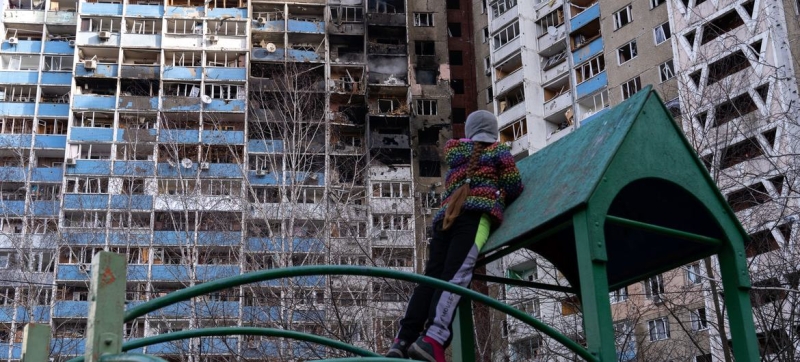
Residential building damaged as a result of shelling in Kyiv, February 2024. UN Commission: Russian military in Ukraine ignores principles of humanitarian law and human rights obligations Peace and Security
In the conflict in Ukraine, Russia is ignoring basic principles of humanitarian law and its human rights obligations. This is stated in the report of the Independent International Commission of Inquiry on events in Ukraine published on Friday.
The commission found new evidence that the Russian military violated human rights and international humanitarian law, and committed war crimes in areas of Ukraine under Russian control.
Neglect of the safety of civilians
The Commission is concerned about the continued use of explosives in densely populated areas. “The number of such incidents confirms the disregard for the safety of civilians on the part of the Russian armed forces,” the report says.
The authors of the report assessed the consequences of the fighting in Mariupol at the very beginning of the invasion. Satellite images, the report says, show widespread destruction of entire urban areas. Local residents spoke of the unbearable suffering they endured during the incessant shelling and aerial bombardment, which led to widespread casualties and injuries.
Data obtained by the Commission indicate that at least 58 medical infrastructure buildings and 11 power plants were damaged or destroyed in Mariupol.
In general, the report’s authors note, attacks carried out by Russian military forces in Mariupol and other Ukrainian cities resulted in civilian casualties and destruction and damage to civilian facilities, including hospitals and cultural institutions. According to them, the Russian military often did not take real precautions to ensure that the affected targets were not civilian.
“We are concerned about the scale, frequency and severity of violations and crimes that the Commission investigated, as well as the consequences for victims and affected communities,” said Commission Chairman Eric Möse.
Torture of prisoners of war and civilians
The new evidence confirms the Commission’s previous findings that torture of civilians by Russian authorities in Ukraine and the Russian Federation is “widespread and systematic.”
The new report focuses on focuses on torture of Ukrainian prisoners of war and describes cases of ill-treatment of such prisoners in places of deprivation of liberty in the Russian Federation: they were subjected to severe pain and suffering during prolonged detention “with flagrant disregard for human dignity”, which led to physical and mental injuries .
One Ukrainian soldier, who was held and tortured by Russian authorities in several prisons, recounted his experience in a penal colony in the city of Donskoy, Tula region, where he was repeatedly tortured, leaving him with broken bones, knocked out teeth and gangrene on his wounded leg. “I have lost all hope and will to live,” the soldier said, adding that he tried to commit suicide. After his release, the soldier was hospitalized 36 times.
During the investigation, additional evidence was discovered of the illegal transfer of children to areas under Russian control.
Read also:
The ICC issued arrest warrants for the commander of the Russian long-range aviation and the commander Black Sea Fleet
Sexual violence
The report documents cases of rape and other sexual violence committed against women while circumstances that also amount to torture. It also details cases of sexually charged torture and threats of rape against male prisoners of war.
The report also describes several human rights violations by Ukrainian authorities against individuals suspected of collaborating with Russian authorities.
The Commission reiterated the importance of ensuring that those responsible are identified and brought to justice. The Commission also emphasizes the importance of other aspects of accountability, such as truth-seeking, reparation and guarantees of non-repetition.
The Commission will present its report to the UN Human Rights Council in Geneva on Monday 18 March.
